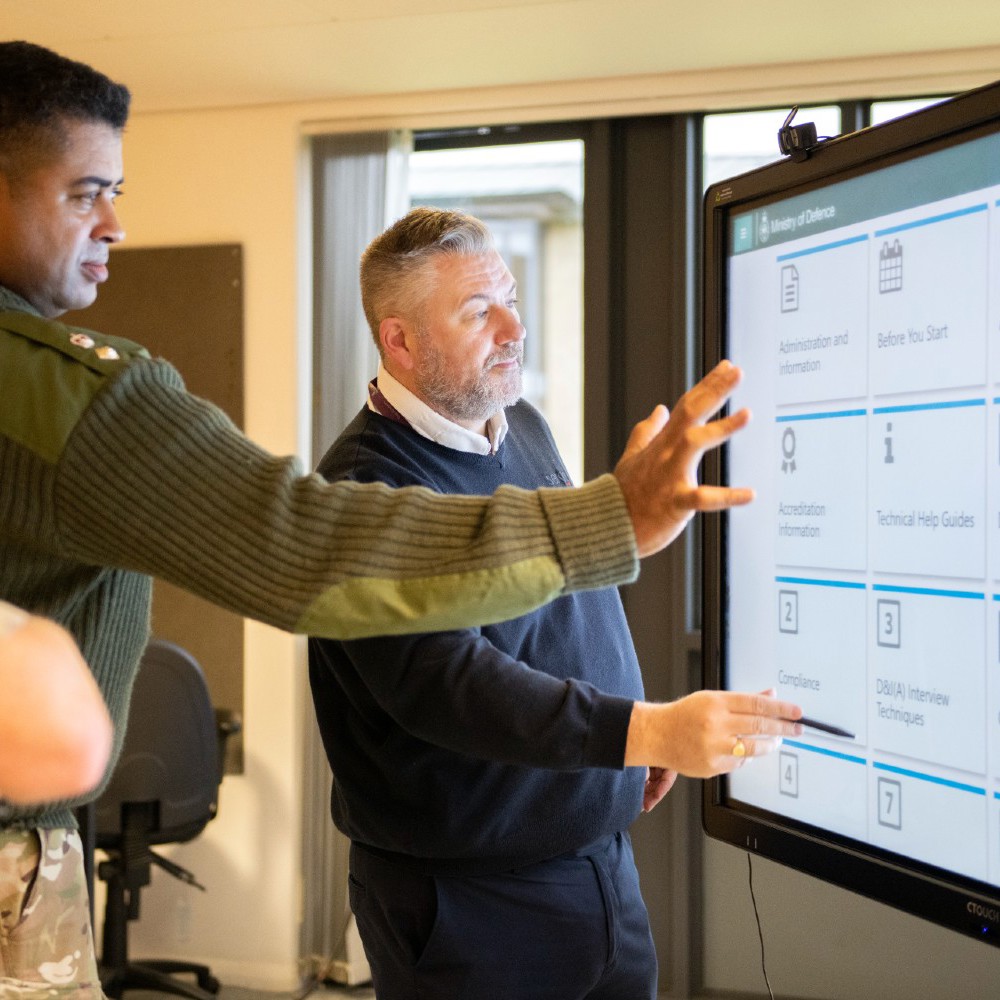Course Information
About this course
This course is aimed at you if your primary role within a training requirements authority (TRA) is to conduct a training needs analysis (TNA) to determine if a change to operational/business practices triggers a perceived requirement for training.
You will conduct further analysis to fully understand the tasks and duties relating to a given role that training is required for. You will then translate the role related analysis into realistic training options and objectives that will be agreed by the TRA and training delivery authority (TDA).
The course, delivered via facilitation, covers the key principles of training needs analysis, in addition to an introduction to of each of the four elements of Defence Systems Approach to Training (DSAT).
Please note: all our courses will be open for application six months prior to the course start date and will appear in the 'Planned dates' box when we are accepting applications. Once application capacity for a singular course iteration has been reached, these course dates will be removed from the 'Planned dates' box. In the table below you can see all course iterations for the full training year and when they will become open for application. For further information please refer to the 2025DIN07-019-Defence Centre for Training Support (DCTS) course information and instruction, which can be found on MODNET.
Applications for the course will be closed six weeks prior to the start date.
| Course number | Course dates | Open for application from |
|---|---|---|
|
TNA 001 |
27 Apr - 01 May 26 |
Jan 26 |
|
TNA 002 |
01 – 05 Jun 26 |
Jan 26 |
|
TNA 003 |
13 – 17 Jul 26 |
Feb 26 |
|
TNA 004 |
24 – 28 Aug 26 |
Mar 26 |
|
TNA 005 |
21 – 25 Sep 26 |
Apr 26 |
|
TNA 006 |
19 – 23 Oct 26 |
May 26 |
|
TNA 007 |
16 – 20 Nov 26 |
Jun 26 |
|
TNA 008 |
11 – 15 Jan 27 |
Aug 26 |
|
TNA 009 |
08 - 12 Feb 27 |
Sep 26 |
|
TNA 010 |
08 – 12 Mar 27 |
Oct 26 |
What you will learn
You will learn to:
- conduct a role analysis (RA) to fully understand the entirety of the role
- create a role performance statement (Role PS)
- conduct a knowledge skills and attitudes (KSA) analysis
- write role specs and role scalars
How this course will help your career
This course is widely required if you work in a TRA or requirement setting team. Additionally, this course is recommended if you are a training manager or learning development officer.
Entry requirements
Who can attend this course
- Military
- MOD civil servants
- Partners across government (PAG)
- Industry
- Internationals
Restricted to personnel involved in training analysis roles that require an understanding of DSAT.
DCTS priority matrix applicants are to use the priority matrix below to identify where they best fall as a priority for the course. On receipt of application acknowledgement and student justification form from DCTS, all applicants are to list their priority number and return the student justification detailing why they fall within the below priority.
| Number | Overview | Detail |
|---|---|---|
|
1 |
Specific operational requirements |
Contained within student justification. Unit/line manager agreement (Defence Trainer Manager, Training Officer, or OF3/C2). Evidence required: For example, assignment order/detachment notice and/or extract from terms of reference (TORs). |
|
2 |
Unit critical, no unit qualified individuals |
Contained within student justification. Unit/line manager agreement (Defence Trainer Manager, Training Officer, or OF3/C2). Evidence required: Evidence of unit risk (training will be cancelled or reduced. Safety could be compromised). In addition, assignment order/detachment notice and/or extract from TORs. |
|
3 |
Unit urgent, reduced number of trained personnel |
Contained within student justification. Unit/line manager agreement (Defence Trainer Manager, Training Officer, or OF3/C2). Evidence required: Evidence of unit risk (training will be cancelled or reduced. Safety could be compromised). In addition, assignment order/detachment notice and/or extract from TORs. |
|
4 |
Current role requirement |
Contained within student justification. Line manager agreement (Training Officer or OF3/C2). Evidence required: Assignment order and/or extract TOR's required and Navy Training Managers in phase 2 training. |
|
5 |
Professional, branch or trade requirement or promotion |
Contained within student justification. Line manager agreement (OF3/C2). Evidence required: Identifying courses for future roles within your profession, branch or trade but not currently your primary role or promotion board requirement. |
|
6 |
Cover of short-term gap |
Contained within student justification. Line manager agreement (OF3/C2). Evidence required: Not your primary role but fulfilling an additional requirement due to gapped post. |
|
7 |
Other reason |
Contained within student justification. Line manager agreement (senior non-commissioned officer). Reason for application (e.g. professional development, interest, future planning). |
Notes for unit justification:
- OF3/C2 contact and detail outlining the situation with numbers of posts, filled/gapped and how many of the filled ones are not yet qualified.
- Extracts of Customer Executive Board (including working groups) records of decision.
- Extracts from the commander's risk assessment or self-assessment report, or other formal staff product which notes the risk (Risk Register, etc).
Before you attend
Prior to attending the residential workshop, you must complete the following reading and learning activities, which cover DSAT and Needs Analysis activities/deliverables:
- changes to Joint Service Publication (JSP) 822: 2015DIN07-179
- JSP 822: Governance and Management of Defence Individual Training, Education and Skills
- Part 2, Guidance: Chapter 1, Element 1: Analysis and Element 2: Design
- Defence Connect DCTS Page – Contains useful DSAT resources
Additional information
How the course will be taught
- Face-to-face
- Online (Virtual)

